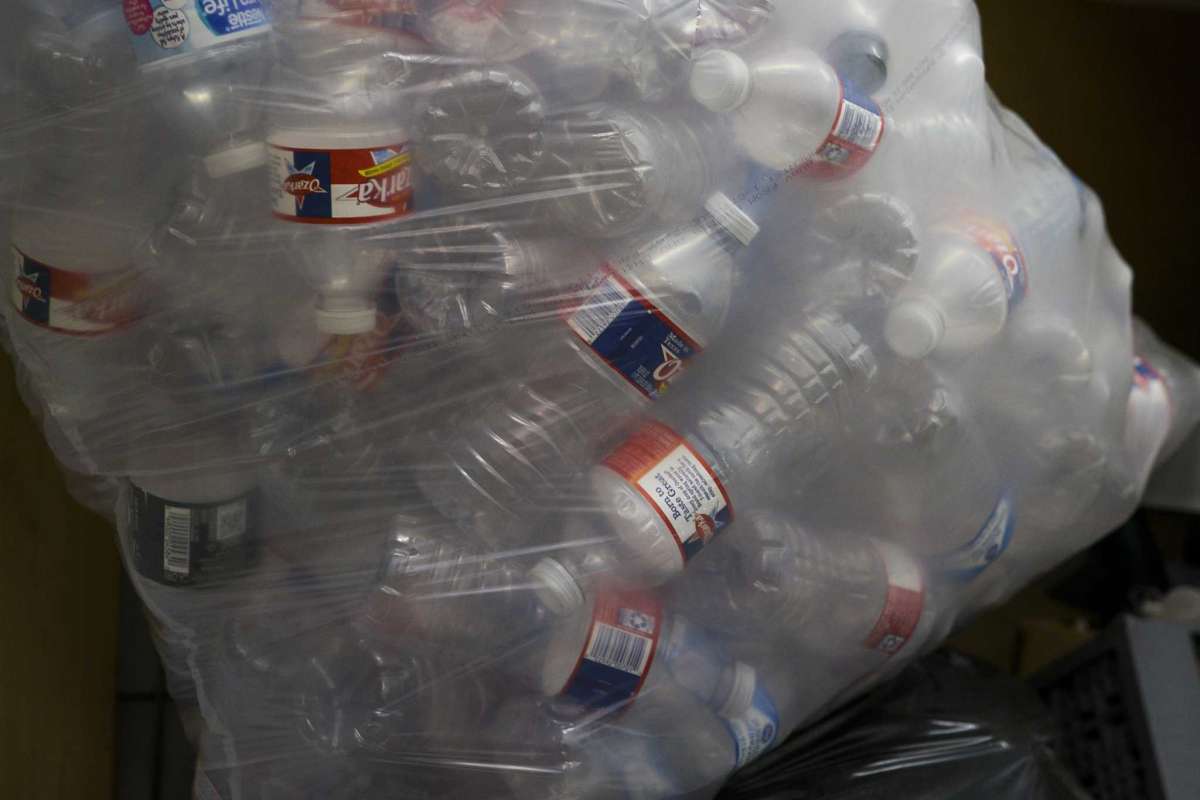By Andrea Leinfelder
Houston Chronicle
WWR Article Summary (tl;dr) Could a 3d printer help solve the problem of plastic waste choking oceans and piling up in landfills?
Houston Chronicle
The Houston startup re:3D is hoping to build its business and maybe save the world with an unusual recipe: Take discarded water bottles, shred them and bake them at 100 degrees until they achieve a certain crispness.
These tiny pieces of crisp recycled plastic provide feedstock for the company’s 3D printer. They are coaxed down a tube and into a nozzle, where they’re melted and reassembled, layer-by-layer, hour-by-hour, into a new product.
The printer, known as the Gigabot X and currently in its beta version, could one day help a pressing problem: What to do with the mountains of plastic waste choking the oceans and piling up in landfills. It’s the latest large-scale printer from re:3D aimed at tackling societal challenges. Its Gigabot 3+ printer, for instance, is providing the means to affordably create products from prosthetics to casts for broken limbs to flooring for refugee camps.
“When people are able to walk with a more normal gait pattern, or people are able to feed themselves through an assistive device that they 3D printed, those things are the most touching for me,” said co-founder Matthew Fiedler. “Using 3D printing as the bridge between imagination and the world around us (is) really affecting people’s lives.”
Re:3D was founded in 2013 by Fiedler, 43, and Samantha Snabes, 38, who were both contractors for NASA. The company was inspired by their time volunteering with Engineers Without Borders, an organization that builds projects including footbridges and solar panels to help communities around the world to meet their basic needs and solve their future challenges. During such travels, Fiedler and Snabes kept noticing massive amounts of plastic trash, people unemployed and innovators with great ideas who couldn’t bring them to life.
They saw large 3D printers as a solution. These printers, by adding one layer of material at a time, allow people to turn digital models into physical objects. New uses, technological advancements and lower costs have nearly tripled the revenues of U.S. 3D printer manufacturers to $3.7 billion in 2018 from $1.3 billion in 2013, according to IBISWorld. The market research firm forecasts those revenues will grow to $5.4 billion in 2023.
In 2013, Fiedler and Snabes enrolled in the Start-Up Chile accelerator program in Santiago, Chile, and received $40,000 in funding from the accelerator. Later that year, re:3D announced a Kickstarter crowdfunding campaign with a $40,000 goal — chosen to match what the accelerator program provided — at South by Southwest in Austin. They met their goal in 28 hours and ultimately raised $250,000.
The Kickstarter campaign took pre-orders for the first iteration of re:3D’s Gigabot printer. This printer used spools of new plastic, each spool weighing five pounds and costing about $100 as Fiedler and Snabes decided to build their expertise in manufacturing large 3D printers before adding the plastic waste component.
“Many people are familiar with the small desktop 3D printers, but we quickly realized that you can’t put all of your dreams and your ideas on these small machines,” Fiedler said. “And so that’s the reason we had to go for a much larger machine.”
The printer’s most recent iteration, the Gigabot 3+, is priced off-the-shelf from less than $10,000 to more than $30,000, depending on size and assemblies. The printer can make objects that are roughly 3 feet tall. The company has sold more than 550 printers across 54 countries.
Using plastic waste in 3D printing could add another layer of global appeal, but it would be especially pertinent in Houston where petrochemical companies have invested billions of dollars in plants that make plastics and plastic feedstocks. The companies are eyeing new recycling technologies to keep plastic waste out of landfills and oceans in the face of a growing public backlash against single-use plastics.
Customers with the beta Gigabot X printer use new or recycled plastic pellets and other ground-up plastics. The recycled plastic pellets costs just $1 or $2 a pound compared to $20 a pound for the five-pound spools. Re:3D is continuing to research the best types of recycled plastic for its Gigabot X printer and how many times this plastic can be reused. Ultimately, re:3D wants to create a system that grinds, dries and then feeds plastic waste directly into the printer.
Helping fund this plastic waste research is a $1 million prize from the WeWork Creator Awards, a competition hosted by the co-working giant to support innovative entrepreneurs, performers, startups and nonprofits, and $1.1 million in Small Business Innovation Research grants from the National Science Foundation and the U.S. Department of Defense. All told, re:3D has raised more than $3 million through accelerator programs, competitions and grants.
Mak studio, a Houston company that creates architectural elements including custom furniture and walls with three-dimensional designs and textures, purchased a 3D printer from re:3D a few years ago to create models of its hard-to-conceptualize designs.
“Clients buy in faster to an idea by seeing a 3D printing of something rather than seeing a drawing,” said co-founder Liz Cordill.
And now, the company is starting to make pieces with the printer. It’s currently working on a light fixture and expects to make more products as the printing technology gets faster and larger.
For those who don’t want to own a printer, re:3D will design and print products for customers. It also offers free classes to teach people how to use 3D printers.
“The idea is really about creating opportunity for people,” Fiedler said. “That means creating jobs, that means utilizing this resource and allowing people to solve their own problems using 3D printing.”
___
Distributed by Tribune Content Agency, LLC.














































































































































































































































































































































































